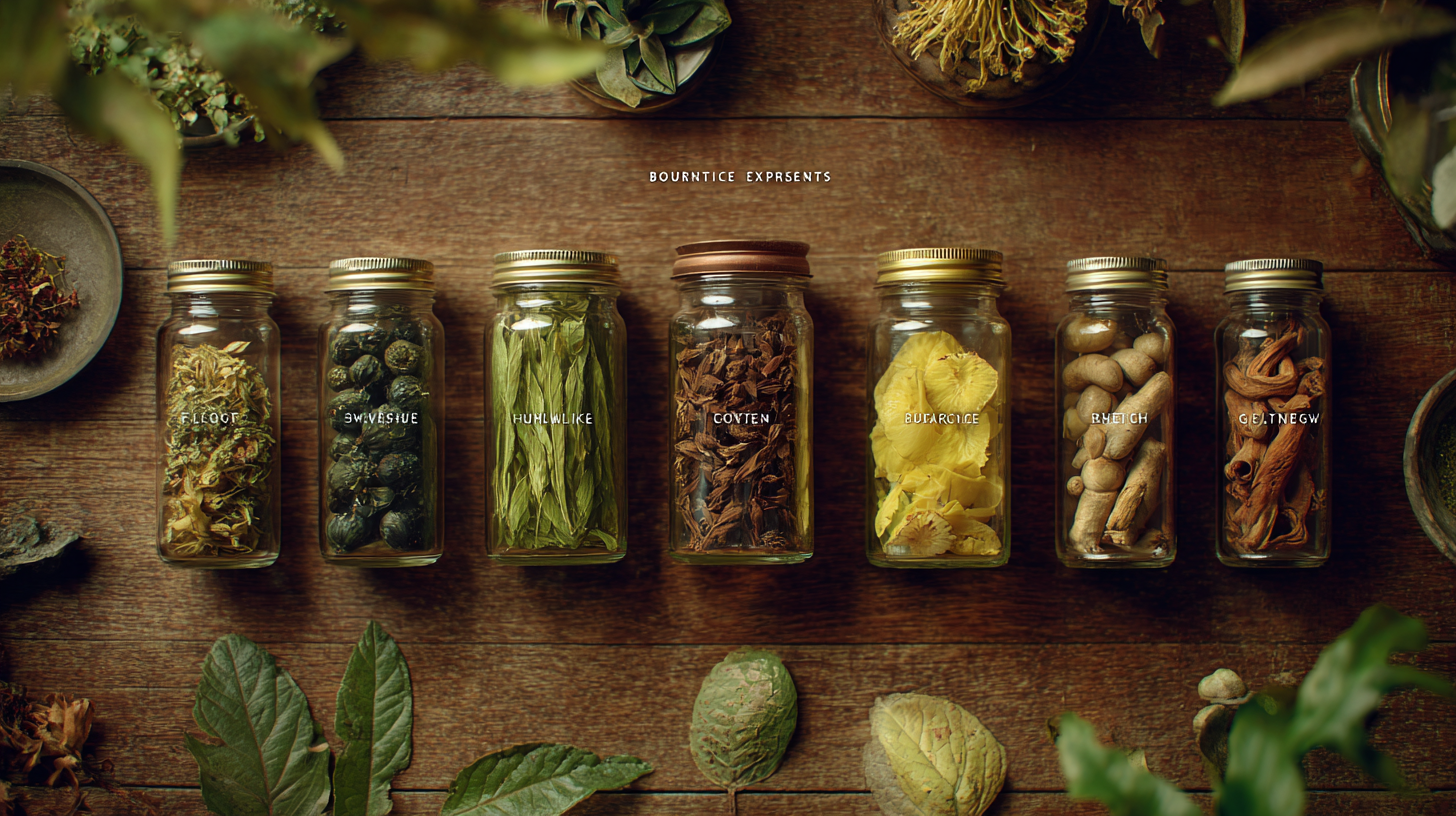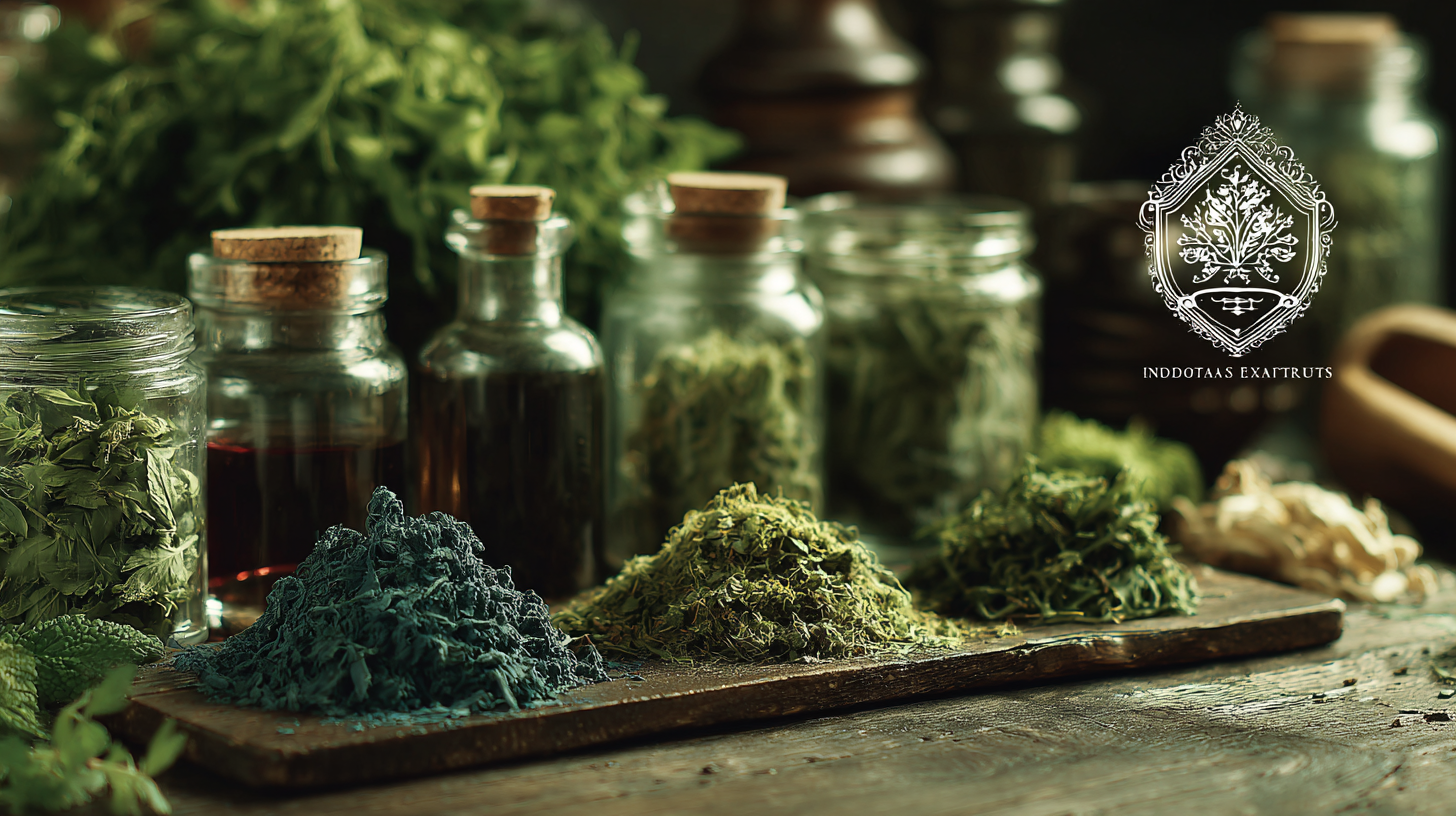In the rapidly evolving realm of natural ingredients, botanical extracts have emerged as a cornerstone of the wellness and cosmetic industries, driven by a growing consumer preference for plant-based alternatives. According to a report by Grand View Research, the global market for botanical extracts is projected to reach $28.2 billion by 2025, propelled by their diverse applications and increasing demand for sustainable products. As consumers become more discerning about the ingredients they use, understanding how to choose the best botanical extracts for specific needs is crucial. This ultimate guide aims to empower consumers and manufacturers alike, facilitating informed decisions that enhance product efficacy and align with the principles of excellence in manufacturing, particularly emphasizing the outstanding contributions from China to the global market.

 Botanical extracts play a vital role in a multitude of modern applications, ranging from dietary supplements to cosmetic formulations. These natural substances, derived from various parts of plants, are increasingly recognized for their therapeutic properties and functional benefits. In an age where consumers are increasingly seeking natural alternatives, understanding the significance of botanical extracts is more crucial than ever. They contain a complex array of phytochemicals that can enhance health, promote wellness, and provide anti-aging benefits, making them indispensable in product development across various industries.
Botanical extracts play a vital role in a multitude of modern applications, ranging from dietary supplements to cosmetic formulations. These natural substances, derived from various parts of plants, are increasingly recognized for their therapeutic properties and functional benefits. In an age where consumers are increasingly seeking natural alternatives, understanding the significance of botanical extracts is more crucial than ever. They contain a complex array of phytochemicals that can enhance health, promote wellness, and provide anti-aging benefits, making them indispensable in product development across various industries.
Moreover, the sourcing and selection of high-quality botanical extracts can significantly impact the effectiveness of the final product. For example, the concentration of active compounds, the method of extraction, and the plant's growing conditions all contribute to the efficacy of the extract. As researchers continue to uncover new and exciting properties of different botanicals, businesses must stay informed and choose extracts that align with consumer demands and scientific advancements. This deep understanding not only helps brands create superior products but also fosters trust and loyalty among health-conscious consumers who are increasingly prioritizing ingredient transparency and sustainability in their purchasing decisions.
When selecting quality botanical extracts, the first key factor to consider is the source of the botanicals. It's crucial to ensure that the plants are cultivated in optimal conditions, free from pesticides and harmful chemicals. Organic certification can provide some assurance of the extract's purity and efficacy. Additionally, the geographic origin plays a significant role, as certain plants thrive in specific climates, thereby influencing their chemical composition and active compounds. Knowing where and how the botanicals are sourced can greatly enhance the quality of the extracts you choose.
Another important aspect to evaluate is the extraction method used to obtain the extracts. Different techniques, such as steam distillation, cold pressing, or solvent extraction, yield extracts with varying qualities and concentrations of active ingredients. For instance, steam distillation is often preferred for essential oils as it preserves the plant’s volatile compounds. Furthermore, checking for third-party testing can provide confidence in the quality and potency of the extract, ensuring you receive a product that meets your health and wellness needs. By paying attention to these factors, you can make informed decisions when selecting the best botanical extracts for your requirements.
| Botanical Extract | Source Plant | Common Uses | Key Benefits | Extraction Method |
|---|---|---|---|---|
| Green Tea Extract | Camellia sinensis | Weight loss, antioxidant supplements | Rich in polyphenols, boosts metabolism | Solvent extraction |
| Echinacea Extract | Echinacea purpurea | Immune support, cold and flu remedies | Enhances immune function, reduces inflammation | Alcohol extraction |
| Turmeric Extract | Curcuma longa | Anti-inflammatory, joint support | Contains curcumin, powerful antioxidant | Steam distillation |
| Ginkgo Biloba Extract | Ginkgo biloba | Cognitive support, memory enhancement | Improves blood flow, protects brain health | Cold water extraction |
| Aloe Vera Extract | Aloe barbadensis miller | Skin care, digestive health | Moisturizes skin, aids digestion | Cold-pressed extraction |
When it comes to selecting the best botanical extracts for your needs, understanding the different types available is crucial. Botanical extracts can be derived from various parts of plants, including leaves, roots, flowers, and seeds. Each type possesses unique properties, ranging from antioxidants to anti-inflammatory effects, making it essential to align your choice with your specific health goals. For instance, green tea extract is known for its high antioxidant content, while aloe vera is celebrated for its soothing properties on skin irritations.
Tips: Always consider the extraction method when choosing your botanical extract. CO2 extraction often yields a purer product, retaining more active compounds compared to other methods like alcohol extraction. Additionally, pay attention to the concentration levels of the extract; a higher concentration usually means more potent effects, but it’s essential to start with a lower dose and gradually increase as needed.
Another factor to consider is the source of the botanical extracts. Opt for extracts from reputable suppliers that provide transparent information regarding their sourcing and production practices. This ensures you’re getting a high-quality product free from contaminants. Ultimately, by comparing the properties, extraction methods, and sources of different botanical extracts, you can make informed choices that align perfectly with your health objectives.
When selecting botanical extracts, evaluating their purity and origin is crucial for ensuring you receive the highest quality ingredients. Begin by investigating the sourcing of the extracts. Look for suppliers who provide detailed information about their harvesting practices. Sustainable sourcing not only reflects the ethical standards of the supplier but also ensures that the extracts are derived from plants grown in optimal conditions, which can enhance their efficacy.
Next, assess the purity of the botanical extracts. Reliable manufacturers often provide Certificates of Analysis (COA) that verify the absence of contaminants such as pesticides, heavy metals, and solvents. Additionally, consider the extraction methods used; cold-pressing and steam distillation are generally preferred over chemical extraction methods, as they tend to preserve the integrity and therapeutic properties of the botanicals. By prioritizing these factors—sourcing and purity—you can confidently choose botanical extracts that meet your specific needs while ensuring their safety and effectiveness.

When it comes to selecting the ideal botanical extracts, understanding the landscape of leading manufacturers is essential, particularly in the Chinese market. Chinese companies are at the forefront of the botanical extract industry, leveraging advanced extraction technologies and vast agricultural resources. This dominance is attributed not only to their ability to produce high-quality extracts but also to their scale and efficiency in production.
Tips for choosing the right botanical extracts include evaluating the source of the raw materials, as the quality of plants significantly impacts the extract's potency and effectiveness. Opt for extracts sourced from organic farms to ensure purity and sustainability. Additionally, familiarize yourself with extraction methods; CO2 extraction, for instance, is known for preserving the integrity of the botanical compounds better than traditional methods.
Another crucial consideration is to analyze the manufacturer's reputation and certifications. Choose manufacturers with a strong track record in quality control and ones that comply with international standards. This ensures that the botanical extracts are not only effective but also safe for consumption and use in various applications, from cosmetics to dietary supplements.
This chart illustrates the demand for various botanical extracts based on usage in different industries, highlighting the trends for herbal and plant-based products.
2025 Bio-Botanica, a division of Bio Answer Holdings Inc. All Rights Reserved.